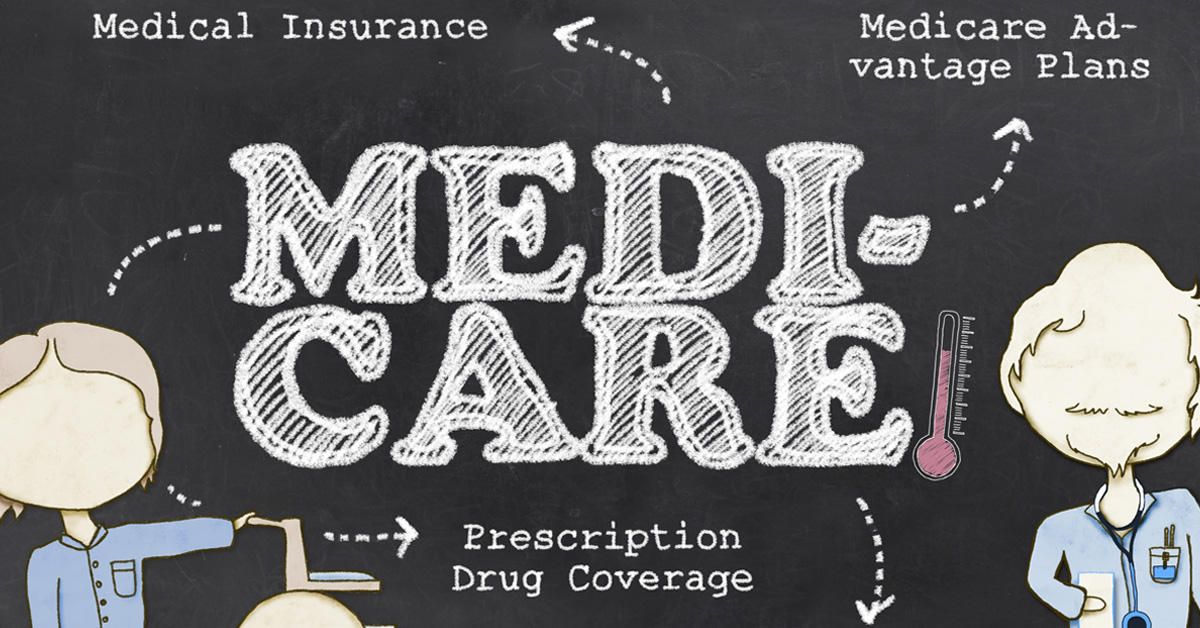
Medicare Advantage Doubles Its Influence in Hospice
The National Home Care & Hospice Association (NAHC) warns that patient choice and quality of care in hospice could be in jeopardy. Traditionally, Medicare Advantage plans (private insurance plans that rebundle one’s Medicare benefits) do not cover hospice. For this very important coverage, patients transition back to original Medicare as needed. However, this year, the Centers for Medicare & Medicaid Services (CMS) began a hospice experiment as part of the value-based insurance design (VBID) demonstration. This demonstration lets Medicare Advantage plans cover hospice. As we move into 2022, the influence of Medicare Advantage in hospice is set to double.
What is the Difference Between Traditional Medicare and Medicare Advantage?
Under Medicare Part C, seniors can elect to have private insurance companies take over and reorganize their Medicare benefits. These Medicare-subsidized, private-insurance plans are called Medicare Advantage plans. The companies providing the most Medicare Advantage policies include: UnitedHealthcare, Humana, Blue Cross / Blue Shield, CVS, and Kaiser Permanente.
In 2022, How Pervasive Will Medicare Advantage Become in Hospice?
In the first year of VBID’s hospice component, only nine Medicare Advantage organizations participated. They made 53 plans available in 206 American counties. In 2022, 13 Medicare Advantage organizations will participate in VBID’s hospice component. They will increase the number of available plans from 53 to 115 and the number of affected counties from 206 to 461. The list of companies participating now includes three of the top 5 Medicare Advantage brands:
- AvMed, Inc.
- Cambia Health Solutions, Inc.
- Catholic Health Care System
- CVS Health Cooperation*
- Hawaii Medical Service Association
- Intermountain Health Care, Inc.
- Kaiser Foundation Health Plan, Inc.*
- Presbyterian Healthcare Services
- Summit Master Company, LLC
- Triple-S Management Corporation
- UnitedHealth Group, Inc.*
- Visiting Nurse Service of New York
How Will Medicare Advantage Affect Choice and Quality in Hospice?
In 2021, CMS required Medicare Advantage plans to pay normal Medicare rates to hospice agencies and to accept the patient’s choice of any Medicare-certified hospice agency. In subsequent years, CMS will unleash Medicare Advantage plans in negotiating rates and limiting choice. People with original Medicare have the right to choose any qualified hospice agency. People with Medicare Advantage often surrender freedom-of-choice rights. If the home health industry is any indication, Medicare Advantage will limit patient choice to lower quality providers who are willing to work for less.
A study out of Brown University School of Public Health matched Medicare’s star-rating system for home health with more than four million home health claims. They found that people with Medicare Advantage were 18% more likely to receive care from a low-quality agency. The connection between lower quality home health care and Medicare Advantage plans held true across all quality rankings of Medicare Advantage plans, but it was more pronounced among Medicare Advantage plans that were themselves ranked lower than four stars. Among the lower-ranked Medicare Advantage plans, patients are 38% more likely to receive care from a low-quality home health agency. Separately, Medicare Advantage is also associated with greater use of low-quality skilled nursing facilities.
What Families Can Do about Medicare Advantage in Hospice
Open enrollment 2021 is October 15 to December 7. A growing number of people are choosing Medicare Advantage plans for bundled supplemental benefits, reduced co-payments, and/or other rewards and incentives promising to improve health. To switch to a Medicare Advantage plan, call the insurance company of your choice. Investopedia’s Lita Epstein writes, “The most comprehensive coverage, which will likely result in the fewest unexpected out-of-pocket expenses, is a traditional Medicare plan paired with a Medigap policy.” To switch to traditional Medicare, call 1-800-MEDICARE.





